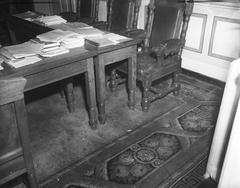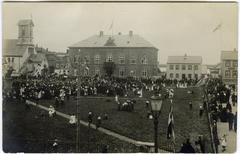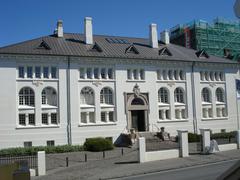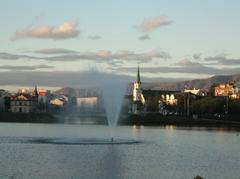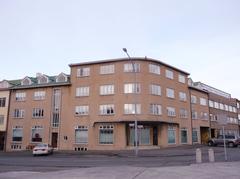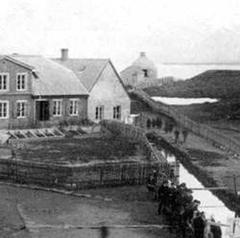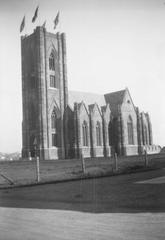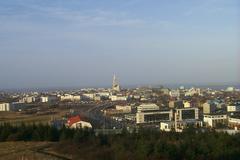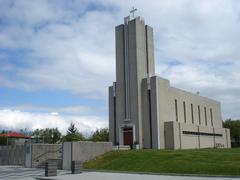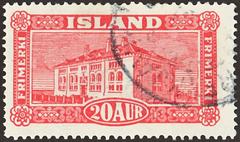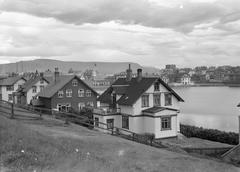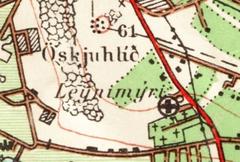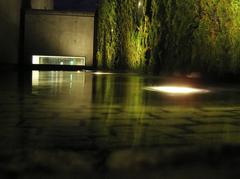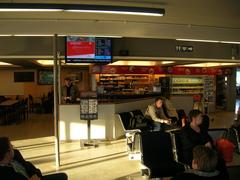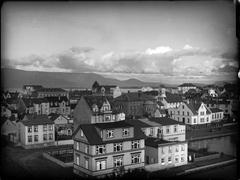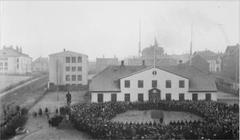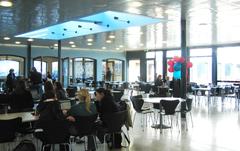Hegningarhúsið Visiting Hours, Tickets, and Historical Significance in Reykjavík, Iceland
Date: 04/07/2025
Introduction
Hegningarhúsið, Reykjavík’s storied former prison at Skólavörðustígur 9, stands as a powerful symbol of Iceland’s legal and social history. Constructed in 1872 during a pivotal era of criminal justice reform, it is the country’s oldest stone prison, notable for its distinctive unhewn rock façade and enduring neoclassical design (Minjavernd; is.nat.is). Today, as it transitions from a closed correctional facility to a vibrant cultural venue, Hegningarhúsið invites visitors to explore its architecture, explore stories from Iceland’s past, and reflect on the evolution of societal values.
This comprehensive guide covers everything you need to know for a rewarding visit — from ticketing and opening hours to its layered history, restoration efforts, and the best ways to experience this unique Reykjavík landmark.
Table of Contents
- Origins and Construction
- Architectural Features & Modifications
- Role in Icelandic Justice & Society
- Preservation and Restoration
- Cultural and Urban Significance
- Visiting Hegningarhúsið: Practical Information
- Nearby Attractions
- Frequently Asked Questions (FAQ)
- Conclusion
- Sources
Origins and Construction
Hegningarhúsið was built rapidly in 1872 following a royal decree that called for the construction of seven prisons across Iceland. Its creation signaled a shift from punitive incarceration to rehabilitation, mirroring broader European reforms in criminal justice. Master builders Klentz and Bald oversaw its construction, resulting in an imposing yet practical facility that not only housed inmates but also served as a courthouse for the National High Court (Landsyfirréttur) and, later, the Supreme Court (Minjavernd).
Architectural Features & Modifications
The prison’s architecture remains largely unchanged since the 19th century, with its grey stone walls and steep roof exemplifying traditional Icelandic construction. The most significant updates occurred in 1923 when the country’s court system was reorganized, leading to adjustments in entrances, staircases, and windows. The original cast-iron cell windows, restored in recent years, and the building’s robust masonry, contribute to its unmistakable historic character (Minjavernd).
Role in Icelandic Justice & Society
From 1872 until its closure in 2016, Hegningarhúsið was central to Reykjavík’s legal system. It functioned both as a prison and a courthouse, hosting a range of legal proceedings. The institution reflected progressive ideals for its time, focusing on rehabilitation through vocational training and structured routines for inmates (Minjavernd). At its peak, it could house up to 23 prisoners, many of whom experienced solitary confinement.
Preservation and Restoration
By the early 2000s, Hegningarhúsið required significant restoration. Following its closure, the Icelandic Heritage Trust (Minjavernd) and State Property Agency initiated major repairs, including masonry reinforcement, roof refurbishment, and restoration of historical features like cast-iron windows. The restoration, with a budget of approximately 360 million ISK, is ongoing and aims to transform the site into a dynamic cultural venue (Minjavernd).
Cultural and Urban Significance
Hegningarhúsið anchors Skólavörðustígur, one of Reykjavík’s oldest and most vibrant streets. Its location places it near Hallgrímskirkja Church and the Einar Jónsson Museum, making it a convenient stop for anyone exploring the city’s cultural heart (Visit Reykjavík). The building is a frequent subject in local art, literature, and city walking tours, symbolizing both the city’s heritage and its ongoing transformation (grapevine.is).
Visiting Hegningarhúsið: Practical Information
Location and Accessibility
- Address: Skólavörðustígur 9, 101 Reykjavík, Iceland
- Getting There: Easily walkable from downtown Reykjavík, close to major landmarks and bus stops (“Lækjartorg” and “Hallgrímskirkja” are both within a 10-minute walk). Limited parking available; public transport or walking is recommended.
Opening Hours
- Typical hours: Thursday–Sunday, 10:00 AM–5:00 PM (seasonal adjustments possible)
- Check current times: Always confirm via the official museum website before your visit.
Tickets and Entry
- Adults: 2,350 ISK
- Students (with ID): 1,450 ISK
- Children (0–17), disabled visitors, ICOM cardholders: Free
- Culture Card: Annual pass grants access to all Reykjavík City Museums, including Hegningarhúsið and other key sites.
Tickets can be purchased online, at the entrance, or via the Reykjavík City Museum network.
Guided Tours & Special Events
- Tours: Available in English and Icelandic; group and private tours can be arranged in advance.
- Duration: 45–60 minutes, covering original cells, administrative areas, and stories from prison life and Icelandic justice.
- Special Events: Temporary exhibitions and cultural events are held periodically; check the museum’s event calendar.
Advance booking is recommended during peak seasons.
Facilities & Visitor Tips
- Accessibility: Ground floor exhibition areas are accessible, but some areas (narrow corridors, steep stairs) may be challenging. Contact staff for accommodations.
- Restrooms: Available on-site.
- Museum shop: Books, souvenirs, and Icelandic crafts.
- Dining: No café on-site, but plenty of options within a five-minute walk.
- Photography: Permitted in most areas without flash/tripod; professional photography requires permission (rate list).
- Dress: Layered clothing advised; the building can be cool due to thick stone walls.
- Language: Staff speak English; signage is bilingual.
- Cultural etiquette: Respectful behavior is expected, especially in former cells and courtrooms.
- Accessibility: If you have specific needs, contact the museum ahead.
Nearby Attractions
- Hallgrímskirkja Church: Reykjavík’s iconic hilltop church is a short walk away.
- Einar Jónsson Museum: Dedicated to Iceland’s renowned sculptor.
- Old Harbor District: Lively area for museums, galleries, and dining.
- Skólavörðustígur Street: Known for colorful art and boutique shopping.
Frequently Asked Questions (FAQ)
Q: What are Hegningarhúsið’s opening hours?
A: Typically Thursday–Sunday, 10:00 AM–5:00 PM; hours may vary. Check the official site.
Q: How much are tickets?
A: Adults 2,350 ISK; students 1,450 ISK; free for children, disabled visitors, and ICOM cardholders.
Q: Are guided tours available?
A: Yes, in English and Icelandic. Book in advance during busy periods.
Q: Is Hegningarhúsið accessible?
A: Some areas are accessible, but historic architecture may limit access. Contact the museum for specifics.
Q: Can I take photos inside?
A: Personal photography is allowed without flash or tripods; permission required for professional shoots.
Q: What other attractions are nearby?
A: Hallgrímskirkja, the Einar Jónsson Museum, Old Harbor, and more.
Conclusion
Hegningarhúsið is a living testament to Reykjavík’s journey from 19th-century justice to modern cultural innovation. With its unique architecture, preserved cells, and evolving role as a cultural venue, it offers an immersive experience for history enthusiasts, travelers, and locals alike. Plan your visit by checking current hours, booking tickets in advance, and considering a guided tour for deeper insight.
Enhance your exploration with the Audiala app’s audio guides, and don’t miss the opportunity to discover nearby landmarks that together tell the story of Reykjavík’s dynamic heritage.
Sources
- Minjavernd: Hegningarhúsið Visiting Hours, Tickets, and History
- Íslenski Ferðavefurinn: Discover Hegningarhúsið
- Grapevine Magazine: Cultural and Social Significance
- Reykjavík City Museum: Visiting Hours and Tickets
- Reykjavik Today: Historical Sites Guide
- Visit Reykjavík: Official Tourism
- Minjastofnun: Heritage Protection
